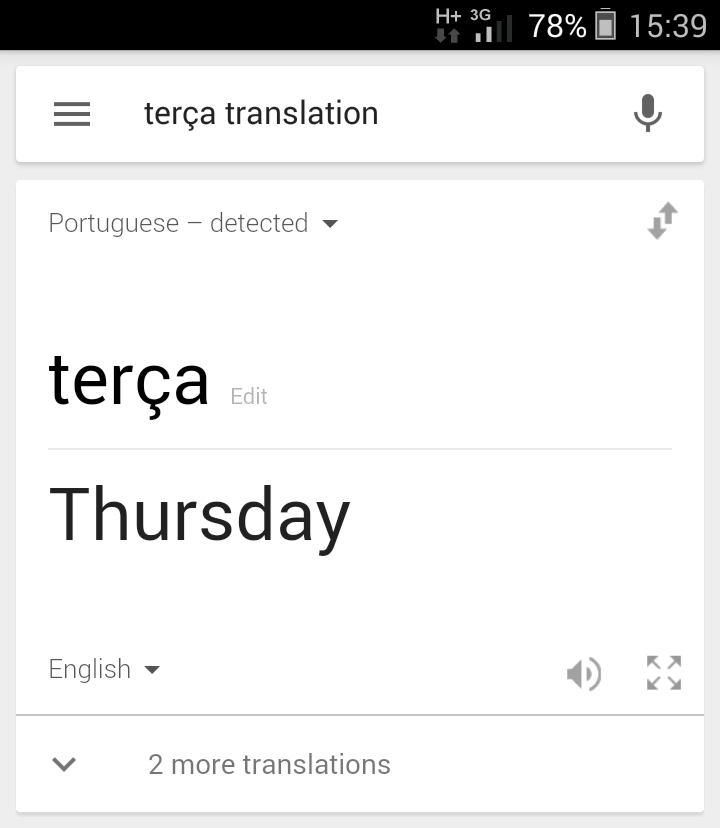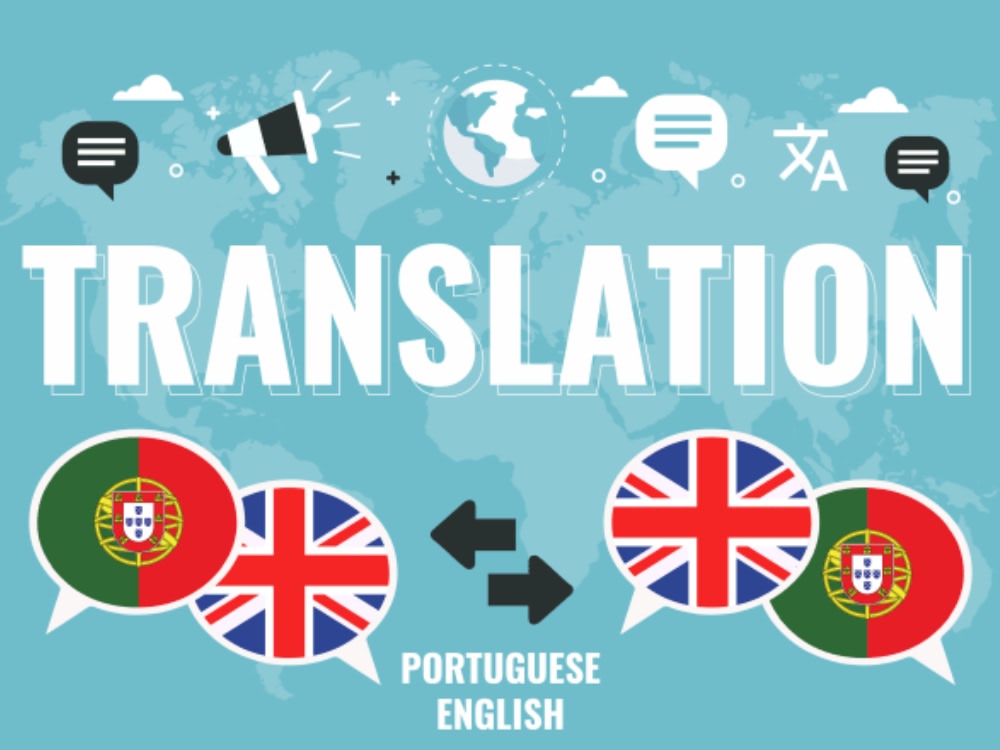Qualified English To Portuguese Translation for Official Documents
Qualified English To Portuguese Translation for Official Documents
Blog Article
Leading Tips for Perfect English to Portuguese Translation Provider
Achieving extraordinary English to Portuguese translation needs more than mere word-for-word conversion; it demands an understanding of etymological intricacies and cultural nuances. Choosing qualified translators who are both proficient and culturally mindful is paramount. Equally essential is the technique of localization, which involves customizing content to regional variations. Additionally, employing contextual references guarantees that the original tone and meaning are preserved. The trip does not finish there; an extensive evaluation and editing process is essential. What other critical variables should be taken into consideration to boost translation high quality even more?
Understand Cultural Nuances
When translating from English to Portuguese, realizing the cultural subtleties is necessary for producing a exact and resonant message. The Portuguese-speaking world varies, including various regions, each with its distinct custom-mades, idioms, and social norms. A translator must be in harmony with these subtleties to make sure that the translation not only conveys the designated message but likewise reverberates with the target audience.
For example, idiomatic expressions in English might not have straight counterparts in Portuguese. An expression that functions well in one culture can lead to confusion or misinterpretation in one more. Recognizing regional languages and variants, such as those found in Brazil and Portugal, is critical; words may hold different undertones or usages depending upon the place.
Additionally, cultural context plays a substantial role in translation. Consideration of historic, social, and political factors can influence language selections and tone. This social awareness enables for the adjustment of content that lines up with regional worths and assumptions, thereby enhancing the efficiency of interaction. Inevitably, a comprehensive understanding of cultural subtleties is essential for supplying translations that are not just linguistically accurate but also culturally appropriate and appealing.
Select Qualified Translators
Selecting qualified translators is a vital action in making sure the accuracy and high quality of English to Portuguese translations. A translator's experience not just incorporates language effectiveness however likewise a deep understanding of cultural context, idiomatic expressions, and industry-specific terms. When picking a translator, focus on those with formal training in translation studies or linguistics, along with pertinent accreditations that demonstrate their professional competence.
Experience plays a pivotal duty too; translators specializing in specific fields-- such as legal, clinical, or technological-- are more probable to supply specific translations tailored to the industry's criteria (English To Portuguese Translation). Furthermore, consider their portfolio and customer testimonies to evaluate their previous job high quality and reliability
Engage translators that are indigenous Portuguese speakers, as they possess a natural understanding of the language's nuances and local dialects. This experience boosts the translation's authenticity and efficiency.
Use Contextual References

When translating, it is important to recognize colloquial expressions and social references that might not have straight equivalents in Portuguese. Specific expressions that reverberate in English could require adaptation to share the same emotional weight or cultural relevance in Portuguese. Using contextual references can assist translators select the appropriate terminology and style, thus boosting the total clarity and impact of the translation.

Emphasis on Localization
Localization plays a critical function in the translation process from English to Portuguese, as it ensures that the translated web content is culturally suitable and appropriate to the target market. English To Portuguese Translation. This procedure exceeds simple translation; it includes adapting the web content to the social, social, and etymological nuances particular to Portuguese-speaking regions
Recognizing neighborhood idioms, customs, and choices is essential. Particular expressions or references that reverberate with an English-speaking target market may not have the very same effect on Portuguese speakers. It is necessary to take into consideration regional variants, such as Brazilian Portuguese versus European Portuguese, as each has unique vocabulary and stylistic differences.
Furthermore, localization encompasses formatting, such as day and time formats, money, and measurement systems, which can vary substantially throughout cultures. This focus to detail promotes a link with the audience, improving involvement and comprehension.
In addition, employing regional languages and slang can supply credibility, making the content a lot more relatable. By concentrating on localization in English to Portuguese translation, companies can successfully communicate their message, build depend on with their target market, and ultimately accomplish their designated purposes.
Review and Edit Completely
Detailed review and editing and enhancing are vital steps in the translation process, specifically when converting here English web content into Portuguese. This phase makes certain that the equated material not only maintains the initial significance yet additionally resonates well with the target audience. Given the etymological and cultural subtleties, a meticulous method to examine and editing and enhancing is vital.
Begin by comparing the initial English text with the Portuguese translation, paying very close attention to tone, context, and terminology. It's vital to guarantee that cultural referrals and idiomatic expressions are properly adapted for the Portuguese audience. Involving a 2nd translator or an indigenous speaker for this review process can provide invaluable insights and capture errors that may have been overlooked.
Additionally, look for grammatic accuracy and stylistic uniformity throughout the record. Typical difficulties such as false cognates or unclear expressions must be dealt with to avoid misinterpretation.
Verdict
Accomplishing phenomenal English to Portuguese translation solutions necessitates a comprehensive strategy that includes understanding cultural subtleties, choosing certified translators, using contextual references, focusing on localization, and carrying out comprehensive testimonials and edits. Each aspect plays an important role in making certain that translations are not only exact however also resonate with the target market. By executing these strategies, companies can enhance the efficiency of their great site communication and promote a deeper connection with Portuguese-speaking target markets.
Accomplishing exceptional English to Portuguese translation needs even more than simple word-for-word conversion; it requires an understanding of cultural subtleties and linguistic ins and outs.Choosing qualified translators is a crucial action in ensuring the accuracy and top quality of English to Portuguese translations.Comprehensive evaluation and editing and enhancing are important actions in the translation procedure, particularly when converting English material right into Portuguese.Begin by comparing the original English text with the Portuguese translation, paying close focus to terms, tone, and context.Achieving outstanding English to Portuguese translation solutions necessitates a comprehensive method that Click Here incorporates understanding social subtleties, selecting qualified translators, utilizing contextual recommendations, prioritizing localization, and carrying out detailed reviews and edits.
Report this page